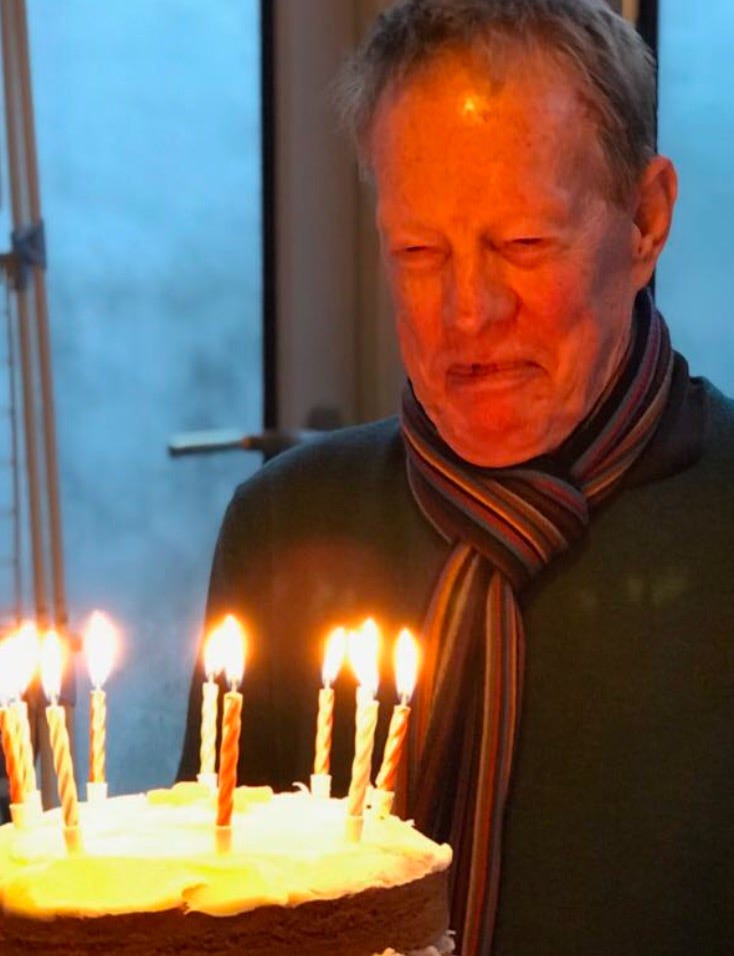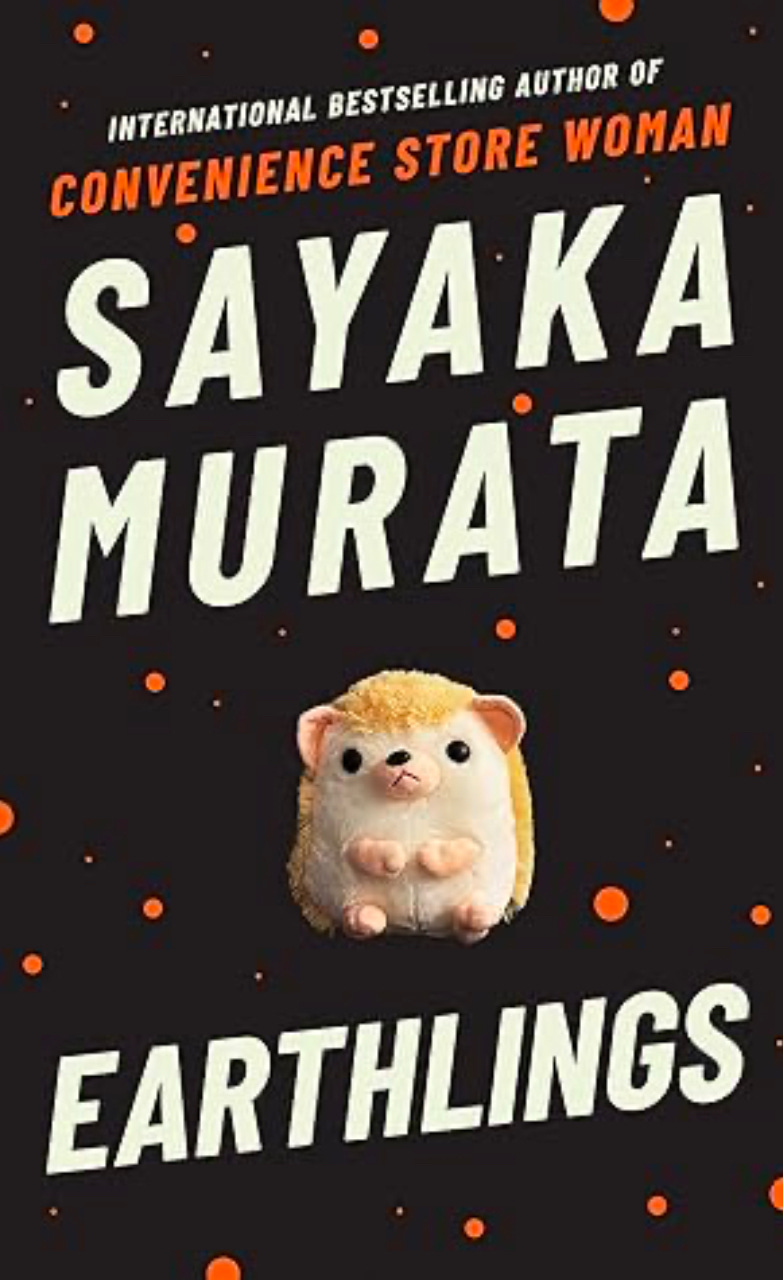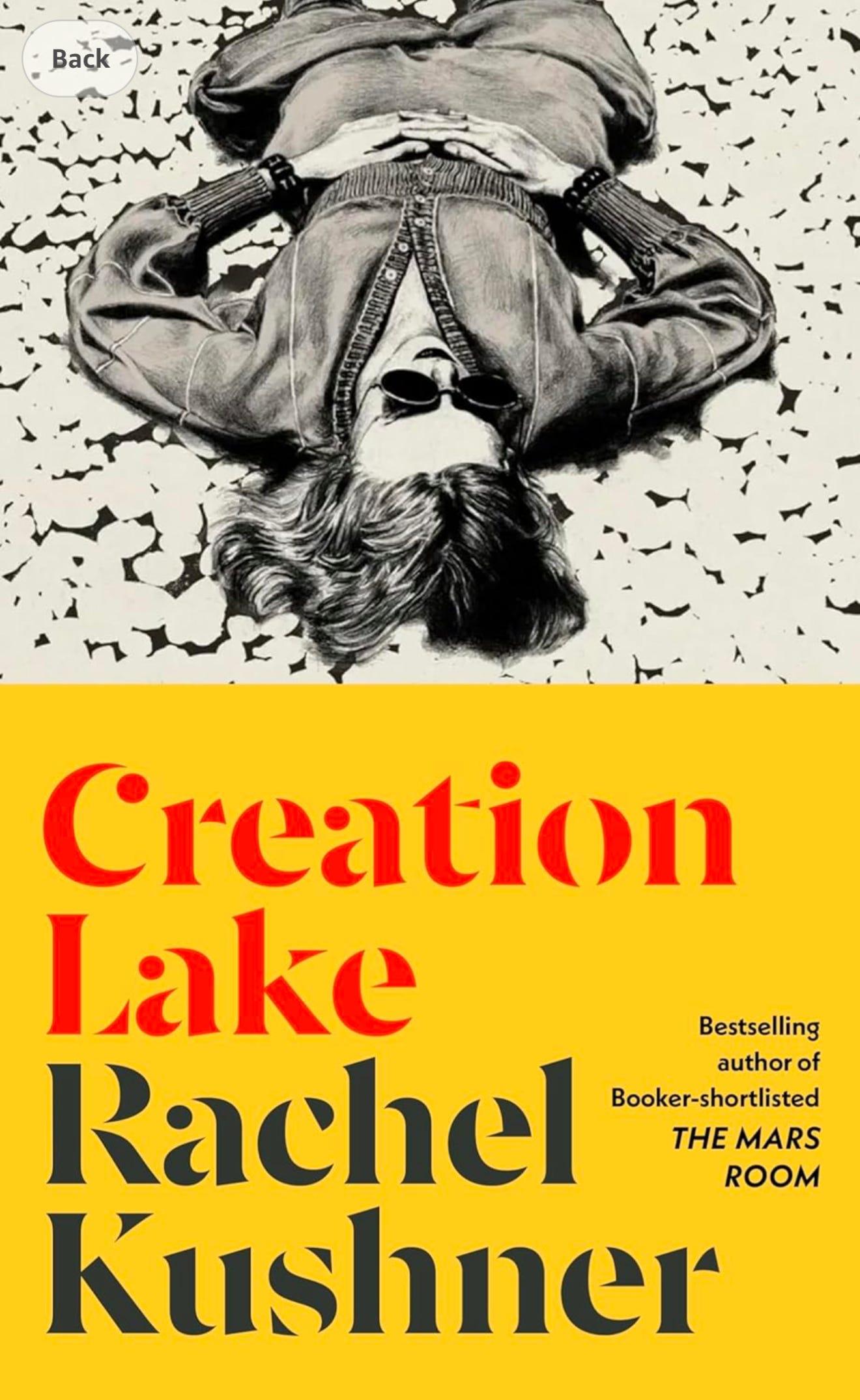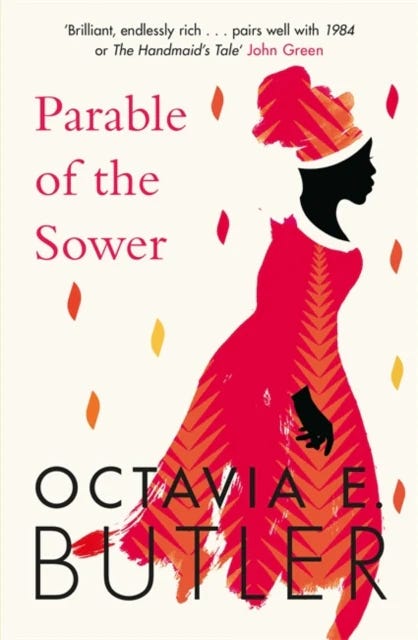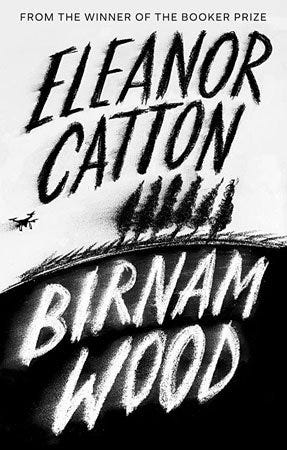This edition is dedicated to Tony, who encouraged by being interested.
My stepfather, Tony, a big reader and beloved teacher, would always ask after my round-up of books of the year, which meant I would also write them. And then he’d let me know some thoughts about the review, which meant I knew someone actually had read it.
He passed away a few days before Christmas this year and so I write this dedicated to that lovely man of letters, so interested in ideas and stories and the minds that made and wrangled with them. Thank you, Tony.
Dear Reader
In a year dominated by AI's relentless evolution, I found myself reading fewer books but choosing them more carefully. Where 2023 saw me devouring primers like A Thousand Brains, 2024 pulled me into a different rhythm - one of constant updates, release notes, and breaking news. Yet paradoxically, this acceleration of real world change made fiction feel more essential than ever.
As the FT Culture podcast noted, "a lot of what's happening currently is full of unknown and the better way to handle it right now is through fiction." Perhaps the books that resonated most deeply this year were those that helped me process our rapidly shifting reality - from Brett Easton Ellis's exploration of unreliable narratives to Eleanor Catton's take on tech billionaire survivalism.
“…a lot of what's happening currently is full of unknown and the better way to handle it right now is through fiction.”
— Life and Art from FT Weekend: Books books books! Our top picks from 2024, 13 Dec 2024
The Shards, by Brett Easton Ellis
You know where you are from the first line of The Shards:
Many years ago I realized that a book, a novel, is a dream that asks itself to be written in the same way we fall in love with someone: the dream becomes impossible to resist, there’s nothing you can do about it, you finally give in and succumb even if your instincts tell you to run the other way because this could be, in the end, a dangerous game—someone will get hurt.
The work keeps this promise: consistently blurring the line between memoir and fiction, reality and nightmare. The Shallows is an unreliably narrated auto-fiction origin story. I was lost in this horror show, a place and time that is so real once you have stepped into his prose. Compelling and terrifying.
Though the narrator seems to be traumatised and confused the book is certain about what it is; and where it is. Upper class Los Angeles in the early 1980s. You’re there. I visited LA when I was 20, maybe ten years after the time this was set and briefly wandered into the Beverly Hills milieu, went to the cinema in Westwood, hung out with movie industry kids at a mansion on Sunset. The Shards puts you in that moment and location so thoroughly that some of it feels like memory or a beguiling bad dream you’ve just woken from.
I listened rather than read the book the first time. The author narrates, which works especially well as this is a book where tone is as crucial as location. That bored, matter of fact, LA drawl whose downbeat cadence implies indifference even as its words compel attention. It is up there with The Secret History read by its author Donna Tartt as a book to listen to and then read. Or the other way around.
The Shards began as a pandemic era podcast, with Easton Ellis reading episodes each week. The audiobook then has heritage as a format to engage with this work.
The book is presented as autobiographical fact, and despite the very small chance that it actually was, I resisted reading anything about it until I’d finished. The possibility of reality added to the confusion and texture of the story.
Here is another passage that is representative of the tone and conceit of the thing:
I felt a profound disconnection for the first time that lightly touched everything I came into contact with. And I realized I was no longer the tangible participant in not only the life of Buckley but in the outside world as well. Nothing seemed to affect me. I had become numb.
The numbness is someways necessary and desirable. You need to be a bit disassociated to get through some of the violence, which is every bit as over the top and grotesque as American Psycho. How you deal with the intense and detailed sex scenes will be a matter for your own tastes and tolerances: it is all context-appropriate gratuitous noise, part of the deeply unpleasant vibe that makes up the book.
Brett Easton Ellis is a difficult and divisive figure, but whoever wanted their artists to be easy to get along with? That sort of weak-stomached bland literary diet will get you nowhere. This book is a soaring achievement of an artist in full command of their powers.
If Easton Ellis explores reality's dissolution through privileged ennui, Sayaka Murata's "Earthlings" approaches it from a radically different angle.
Earthlings, by Sayaka Murata
First line:
Deep in the mountains of Akishina where Granny and Grandpa live, fragments of night linger even at midday.
The story starts with a scene of bucolic innocence; a pair of cousins who share a fantasy that they are aliens trapped on Earth, which explains why earthlings’ ways seem so strange to them. But the fantasy persists as belief into adulthood, a secret shared delusion.
It seems clear that they are coping with having non-typical brains in a world that cannot recognise that or give them useful labels for their difference. Their unsustainable world view resolves as madness.
The story ends in a place of horror, but you are led there so artfully by the author that once again, it seems completely appropriate and right for the story.
When it ended, I didn’t want to stop hearing the author’s voice and immediately began reading Convenience Store Woman, the book which made Murata an international bestselling author.
From now on, I’ll turn up for whatever she has to share.
While Murata's characters reject society entirely, Rachel Kushner's protagonist in Creation Lake chooses to infiltrate it, wielding her disconnection as a weapon.
Creation Lake, by Rachel Kushner
First lines:
Neanderthals were prone to depression, he said.
He said they were prone to addiction, too, and especially smoking.
Kushner is another writer I will always read new work from sight unseen. But combine Neanderthals and a dispassionate narrator who sees ideology as weakness and holds her sense of self lightly, and I’m a very happy reader.
If you have a good memory, and if you don’t get in the way of your constructed self, it’s not hard, even under duress, to remember who you are supposed to be.
The protagonist is a corporate spy sent to infiltrate and agitate a commune of French radical activists. The musings about ‘Thals (as he called Neanderthals) are from an influential thinker who lives in the cave complexes beneath the area where giant mega-basins (reservoirs) are about to be constructed by the French government.
The plot is fun, but the themes and the ideas are the stars here, with characters weakened by solipsistic vanity or rendered subjective by pragmatic cynicism.
The protagonist is a sociopathic solipsist:
You people are not real to me. No one is.
Antarctica, Claire Keegan
This is a book of short stories. Perhaps we could call it the book of short stories, with its being such a perfect example of the form.
Keegan is a literary genius. Her work is characterised by sharp ideas delivered with potent, precisely crafted prose. For example:
This water is colder than a broken dream.
Antarctica is a slim book that will not be rushed. Each story is so intense an experience that I needed a break after each to reflect and process my thoughts before daring to start another. In Keegan’s own words:
Time altered, took on unfathomable dimensions.
And what more can you ask from a work of fiction?
One last quote from Antarctica that felt true – as with so many other of this year’s reads, it is about a precarious sense of self:
I used to think I could never know too much. In college, I couldn’t get enough. I stacked the books up high on the bedside locker, read late into the night and traded them in for more as if learning was something you could reduce over time. But now I know too much; like an eavesdropper I feel I have overheard an irrefutable story about myself, and so I must go slowly, must keep this to myself until I’m ready. Like holding a too-full glass, not being able to move, afeared of spills.
The protagonist in our next book is writing her own story, one that in an echo of its biblical title, seems destined to become scripture.
Parable Of The Sower, Octavia E Butler
Drowning people sometimes die fighting their rescuers.
That line haunts me. Written in 1993 but set in our present moment, Parable of the Sower feels less like speculation and more like prophecy. It is positioned as a complement to The Handmaid's Tale by a quote on the cover, Butler's work charts its own distinct territory, one that feels strangely hopeful despite its grimly realistic depiction of societal collapse.
A little way into the book, I had the uncanny realisation that the future it was describing was precisely now. The story, related as dated diary entries, begins in late 2024.
It gave me the weird sensation of reading a prophecy, which added some depth to the flavour of the story. While we haven't reached Butler’s predicted level of societal breakdown, the parallels are unsettling. The fictional President Donner [sorry, what?], is elected on promises to make America great again through corporate-friendly policies that border on slavery, feels less like speculation and more like extrapolation. Actually, in the sequel, which I’m currently reading there is another president who is literally described as wanting to make America great again. Quelle coincidence!
The novel introduces us to Lauren Olamina, a young woman whose coming-of-age story unfolds within the confines of a walled community in Los Angeles. Lauren's father, a preacher, tries to maintain order through traditional faith and community organised defence drills. But Lauren, with a “hyperempathy syndrome” that means she physically feels others’ pain and pleasure, cannot ignore the reality beyond the walls. She develops her own belief system, “Earthseed”, which acknowledges humanity's destructive tendencies while proposing a radical solution: the stars themselves as humanity's destiny.
We are coming apart. We're a rope, breaking, a single strand at a time.
The first half is a pressure cooker, tension building within the walls as the community tries to maintain normalcy. The second half is a journey that prefigures Cormac McCarthy's The Road, but with a crucial difference – where McCarthy's work is an elegy for a dead world, Butler's is a seed searching for fertile ground.
Where Parable of the Sower differs most significantly from its dystopian contemporaries is in its insistence on hope – not the easy hope of a sudden solution or divine intervention, but the hard-won hope of people who see the world clearly and choose to build something new anyway. Lauren's Earthseed philosophy, with its central tenet that "God is Change," feels like a necessary evolution of faith for an age of collapse.
This is perhaps why the book feels so relevant now – we too are living in an age where old certainties are crumbling, where the future seems to be closing rather than opening. Like Lauren, we're caught between the impulse to fortify our walls and the knowledge that adaptation and movement are necessary for survival. The drowning people fighting their rescuers become a metaphor for all of us, clinging to familiar systems and beliefs even as they drag us under.
For readers new to Butler's work, Parable of the Sower is an excellent entry point. While her Lilith's Brood trilogy showcases her ability to imagine truly alien perspectives, Sower's near-future setting makes its insights more immediate and relatable. It manages to be both a warning and a guide – showing us not just what might go wrong, but how we might survive it with our humanity intact.
Birnam Wood, Eleanor Catton
The first line of Birnam Wood lets you know there will be no shortage of drama and plot:
The Korowai Pass had been closed since the end of the summer, when a spate of shallow earthquakes triggered a landslide that buried a stretch of the highway in rubble, killing five, and sending a long-haul transport truck over a precipice where it skimmed a power line, ploughed a channel down the mountainside, and then exploded on a viaduct below.
What a sentence! Intention, place, pace and tone all established immediately.
This gripping novel brings together environmental activists and a tech billionaire with a bunker in New Zealand— pairing ecological urgency with the shadow of Silicon Valley survivalists. It delivers on every level: a fast-paced thriller that and a study of the intricate dynamics of friendships.
The plot is strong and the themes urgent, but the characters are where this book achieves near perfection. Every individual is layered, every relationship nuanced. The emotional complexity is palpable and profoundly real.
The book’s premise—eco-warriors and tech billionaires plotting the end of the world in New Zealand—shares its real life inspiration with The Future by Naomi Alderman, and it’s just as much fun.
Special thanks to my friend and uber-reader Kate for pointing me toward this masterpiece. Two of my top reads this year were thanks to her, and I’m deeply grateful.
Last word to Lemoine, the Elon-adjacent billionaire character, which rang true from memories of my own infrequent brushes with the very rich:
'And I've been in the citadels of power […]. 'I've eaten at the high tables; I've seen behind the doors that never open. Everyone's the same. You reach a certain level and it's all exactly the same: it's all just luck and loopholes and being in the right place at the right time, and compound growth taking care of the rest. That's why we're all building barricades. It's in case the rest of you ever figure out how incredibly easy it was for us to get to where we are?
'Jesus,' Mira said. 'That's fucking dark.
'Well, if you get too depressed, remember that it's also just a pissing contest.
And on that note: Happy New Year! I’ll follow up soon with my top non-fiction and business reads of 2024 and Antonym’s normal programming will resume soon.
Happy Winter Reading!
Antony






